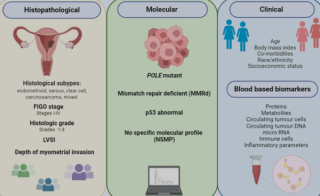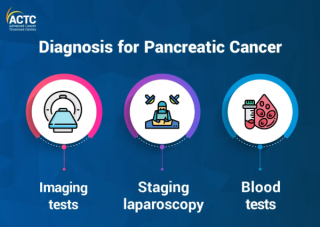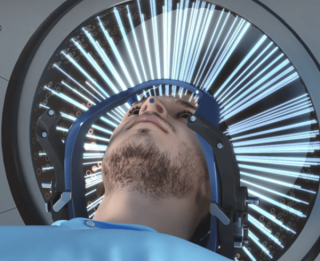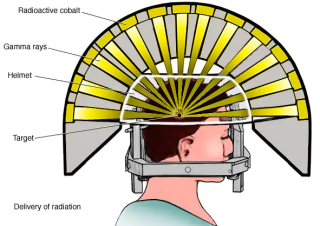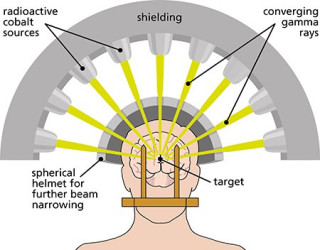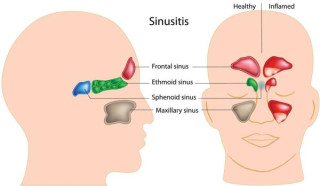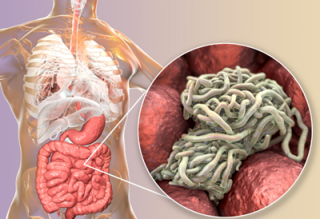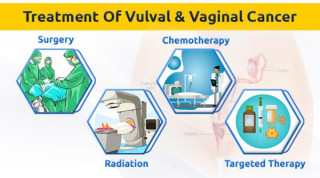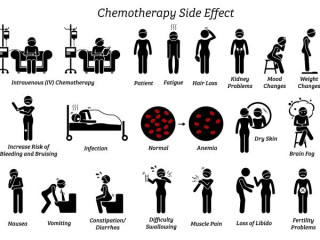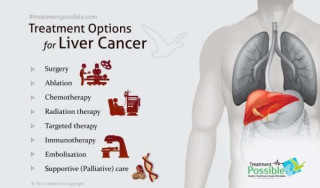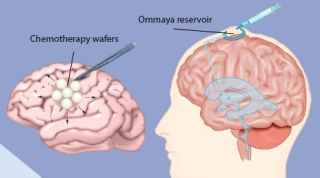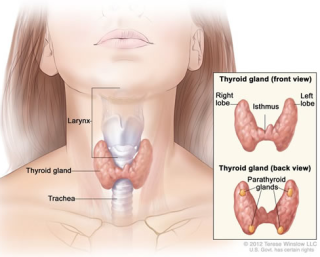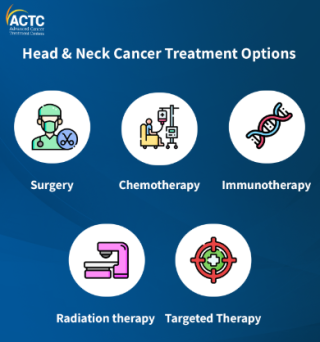Who should take Biological Therapy?created at May 19, 2009 1,883 1,883 Biological therapy, |
Does Chemical Peeling or Laser Treatment Work?updated at Nov 08, 2025 1,677 1,677 Both chemical peels and laser treatments are popular options for improving skin appearance, |
Are there Clinical Trials available for Vulvar Cancer?updated at Nov 09, 2025 1,465 1,465 Clinical trials for vulvar cancer exist, |
Will I be able to adjust to Valva Cancer well?created at May 05, 2009 1,414 1,414 Adjusting to a vulvar cancer diagnosis and treatment is a deeply personal journey, |
Side Effects of Vulvar Cancer Chemotherapyupdated at Nov 08, 2025 1,443 1,443 Chemotherapy for vulvar cancer can lead to a variety of side effects, |
Radiation Therapy Side Effects of Vulvar Cancerupdated at Nov 09, 2025 1,514 1,514 Understanding Side EffectsRadiation therapy is a common treatment for vulvar cancer, |
What's new in endometrial cancer research and treatment?created at May 05, 2009 1,335 1,335 Recent advancements in endometrial cancer research focus on improving risk stratification through genomic profiling and identifying novel biomarkers for early detection and prognosis.Immunotherapy, |
What should you ask your physician about endometrial cancer?updated at Nov 22, 2025 1,721 1,721 Talking to Your Doctor About Endometrial Cancer: Questions to AskNavigating an endometrial cancer diagnosis requires open and thorough communication with your physician.Asking the right questions can empower you to make informed decisions about your treatm... |
Is a second opinion important for cervical cancer treatment?created at May 04, 2009 1,627 1,627 A second opinion for cervical cancer treatment is highly recommended, |
Will I be able to adjust to this disease well for Pancreatic Cancer?created at May 04, 2009 1,212 1,212 Adjusting to a pancreatic cancer diagnosis is a deeply personal and challenging process, |
What are the Side Effects of Treatment for Colorectal Cancer?updated at Nov 08, 2025 1,499 1,499 Side effects from colorectal cancer treatment are highly variable, |
Biological Therapy for Colorectal Cancercreated at May 04, 2009 1,399 1,399 Biological therapy for colorectal cancer, |
Gamma Knife & Stereotactic Radiosurgerycreated at May 04, 2009 1,601 1,601 Gamma Knife and stereotactic radiosurgery are advanced, |
Precision Treatment: Understanding Stereotactic Radiosurgery for Brain Tumorscreated at May 04, 2009 1,437 1,437 Stereotactic radiosurgery (SRS) is a precise radiation therapy technique used to treat brain tumors and other lesions.It delivers a highly focused, |
Essential Questions to Ask Your Doctor About Brain Cancer Treatmentcreated at May 04, 2009 1,273 1,273 Navigating a diagnosis of brain cancer can be overwhelming, |
Understanding the Side Effects of Brain Tumor Treatmentcreated at May 04, 2009 1,474 1,474 Brain tumor treatments, |
Clinical trials for Brain Cancercreated at May 04, 2009 1,270 1,270 Clinical trials for brain cancer are research studies that test new treatments, |
Stereotactic radiosurgery for Brain Cancercreated at May 04, 2009 1,276 1,276 Stereotactic radiosurgery (SRS) is a non-invasive type of radiation therapy that delivers highly focused beams of radiation to a precise point in the brain to target brain tumors, |
Understanding Radiation Therapy for Brain Tumorscreated at May 04, 2009 1,488 1,488 Radiation therapy for brain tumors uses high-energy radiation to kill cancer cells and shrink tumors.This can be delivered externally through a linear accelerator (external beam radiation therapy) or internally via implanted radioactive seeds (brachytherap... |
Exploring Treatment Options for Bone Cancer: A Comprehensive Guidecreated at May 03, 2009 1,568 1,568 Treatment for bone cancer depends on several factors including the type and location of the cancer, |
Understanding Acne Medications: Options and Considerationscreated at May 03, 2009 1,520 1,520 Acne treatment options range from over-the-counter topical treatments like benzoyl peroxide and salicylic acid, |
Are there any acne treatments specifically for people with dark skin? Are there any treatments specifically harmful to dark skin?created at May 03, 2009 1,255 1,255 While there aren't acne treatments *specifically formulated* for dark skin, |
Remembering Your Oral Acne Medication: Tips and What to Do If You Forgetcreated at May 03, 2009 1,375 1,375 To remember your oral acne medication, |
Managing Acne Breakouts: Treating All Acne-Prone Areascreated at May 03, 2009 1,501 1,501 Managing acne breakouts requires a holistic approach addressing all acne-prone areas, |
The Importance of Adhering to Medication Instructions for Acne Treatmentupdated at Nov 07, 2025 1,293 1,293 Acne medications, |
Can anything be done about scarring caused by acne?updated at Nov 07, 2025 1,353 1,353 Acne scarring can be a frustrating and persistent reminder of past breakouts.While completely eliminating scars is often difficult, |
Navigating Side Effects from Sinusitis Medications: What You Need to Knowcreated at May 07, 2009 1,439 1,439 Sinusitis medications, |
Is Getting a Tattoo During Pregnancy Safe? Here's What You Need to Knowupdated at Nov 09, 2025 1,881 1,881 Getting a tattoo during pregnancy is generally not recommended by healthcare professionals.While hard evidence demonstrating that tattoo ink directly harms the fetus is lacking, |
Essential Guidelines for Those Undergoing Growth Hormone Therapycreated at May 14, 2009 1,398 1,398 Successfully undergoing growth hormone therapy requires diligent adherence to prescribed dosages and administration schedules, |
What is the replacement therapy for growth hormone deficiency?created at May 19, 2009 1,385 1,385 Growth hormone deficiency (GHD) replacement therapy involves administering synthetic human growth hormone (somatropin) via daily injections or, |
Understanding Growth Hormone Dosing - What You Need to Knowcreated at May 14, 2009 1,344 1,344 Growth hormone (GH) dosing is highly individualized and depends on factors like age, |
Why haven't I heard of human growth hormone before?created at May 19, 2009 1,346 1,346 Human growth hormone (HGH), |
Preparing for Growth Hormone Treatment - What to Share with Your Doctorcreated at May 14, 2009 1,439 1,439 Before starting growth hormone treatment, |
Banishing Pinworms - A Guide to Treatment and Recoverycreated at May 13, 2009 1,345 1,345 Pinworm infections, |
Navigating Clinical Trial Decisions for Head and Neck Cancer Treatmentcreated at May 09, 2009 1,308 1,308 Clinical trial decisions for head and neck cancer treatment depend on several factors, |
Exploring Three Vulvar Cancer Treatmentscreated at May 05, 2009 1,309 1,309 Three common treatments for vulvar cancer include surgery, |
Navigating Ovarian Cancer Treatment - Key Questions to Ask Your Doctorcreated at May 05, 2009 1,428 1,428 Ovarian cancer treatment depends on the stage, |
Balancing Act: Understanding the Side Effects of Biological Therapy in Stomach Cancer Treatmentcreated at May 04, 2009 1,284 1,284 Biological therapy for stomach cancer, |
Treatment for Liver Cancer? What should I ask?created at May 04, 2009 1,242 1,242 When discussing liver cancer treatment options with a healthcare professional, |
What are the side effects of treatment for Endocrine Cancer?created at May 04, 2009 1,242 1,242 Side effects of endocrine cancer treatment, |
Chemotherapy for Brain Cancercreated at May 04, 2009 1,286 1,286 Chemotherapy for brain cancer involves using drugs to kill cancer cells, |
What should I ask my doctor when diagnosed with thyroid cancer?created at May 04, 2009 1,271 1,271 When diagnosed with thyroid cancer, |
Exploring Chemotherapy: A Powerful Weapon Against Cancercreated at May 04, 2009 1,363 1,363 Chemotherapy, |
Exploring Treatment Options Beyond Surgery for Head and Neck Cancerscreated at May 09, 2009 1,293 1,293 Treatment options for head and neck cancers beyond surgery include radiation therapy, |
Navigating Life After Head and Neck Cancer Treatment: Practical Advice and Supportcreated at May 09, 2009 1,301 1,301 Life after head and neck cancer treatment involves a multifaceted recovery process focusing on physical rehabilitation, |
Bleaching Teeth during Pregnancycreated at Nov 17, 2009 1,629 1,629 While some teeth whitening products are considered safe during pregnancy, |
Debunking Myths: Antibiotic-Treated Livestock Meat and Pregnancycreated at Nov 18, 2009 1,778 1,778 Pregnant individuals face numerous dietary considerations, |
Maintaining Clear Skin: Understanding When to Stop Acne Medicationupdated at Nov 29, 2024 1,394 1,394 Stopping acne medication should only occur under the guidance of a dermatologist.They will assess your skin's response to treatment, |

